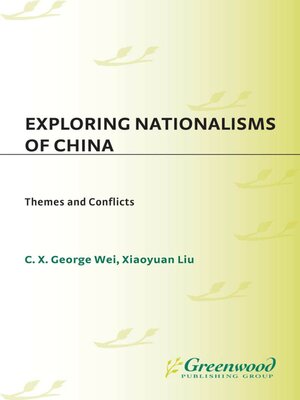Exploring Nationalisms of China
ebook ∣ Themes and Conflicts · Contributions to the Study of World History
By C. X. George Wei

Sign up to save your library
With an OverDrive account, you can save your favorite libraries for at-a-glance information about availability. Find out more about OverDrive accounts.
Find this title in Libby, the library reading app by OverDrive.



Search for a digital library with this title
Title found at these libraries:
| Library Name | Distance |
|---|---|
| Loading... |
China is a site for the evolution, not only of Chinese nationalism, but the nationalism of various non-Han ethnic groups. During the 20th century, these ethnic groups constructed and expressed their own identities and nationalism through interaction with one another and with outside influences. This interdisciplinary anthology contains nine original works that pluralize our understanding of nationalism in China by illustrating the various intellectual strains of China's nationalist discourse, the dichotomy between the political authorities' and grass roots' experiences, and the nationalizing efforts by various ethnic and political groups along China's inland and maritime frontiers.
First, contributors explore the controversy surrounding the contested issue of China's national and international identity from pre-modern times to the present. Next, the authors examine China's nationalist encounters with foreign influences such as U.S. Marines in Shandong, Soviet experts in Manchuria, and recent friction between the United States and the PRC. Finally, essays expand beyond the ethnographic regions of the Han-Chinese and the political domain of the PRC to discuss the odyssey of Taiwan's nationalism in both a political and a cultural sense. Many selections are based on newly declassified archival materials.
First, contributors explore the controversy surrounding the contested issue of China's national and international identity from pre-modern times to the present. Next, the authors examine China's nationalist encounters with foreign influences such as U.S. Marines in Shandong, Soviet experts in Manchuria, and recent friction between the United States and the PRC. Finally, essays expand beyond the ethnographic regions of the Han-Chinese and the political domain of the PRC to discuss the odyssey of Taiwan's nationalism in both a political and a cultural sense. Many selections are based on newly declassified archival materials.







